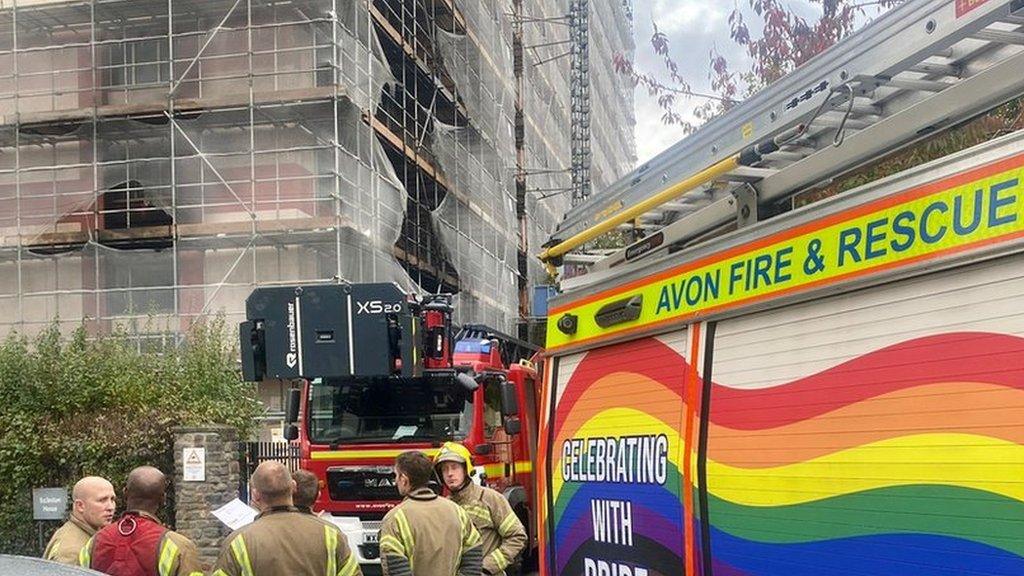Bristol City Council agrees £20m for tower fire safety plan
- Published
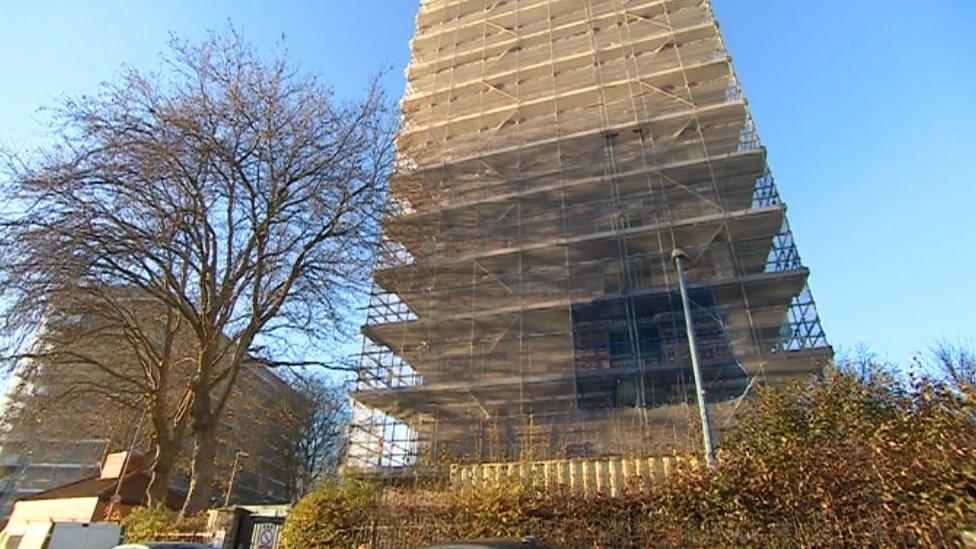
The council has agreed a £20m package to improve fire safety in high rise residential buildings
Bristol City Council has approved a further £20m spending package to improve fire safety at tower blocks in the city.
The move follows two serious fires in high-rise buildings in the past few months.
A report found 38 blocks comprising nearly 3,000 flats needed changes to protect residents.
Half the funding has been earmarked for a wireless alarm system, with the rest spent on round-the-clock fire wardens.
In October, six people were injured in an arson attack at Ecclestone House in Barton Hill, east Bristol.
It followed the death of Abdul Jabar Oryakhel, 30, who fell to his death while trying to escape a fire in his flat at Twinnell House, Easton, in late September.
The incidents prompted the council to implement a £200,000-per-week scheme for 77 wardens to carry out a 24-hour "waking watch" in high-risk buildings to alert residents if a fire breaks out.
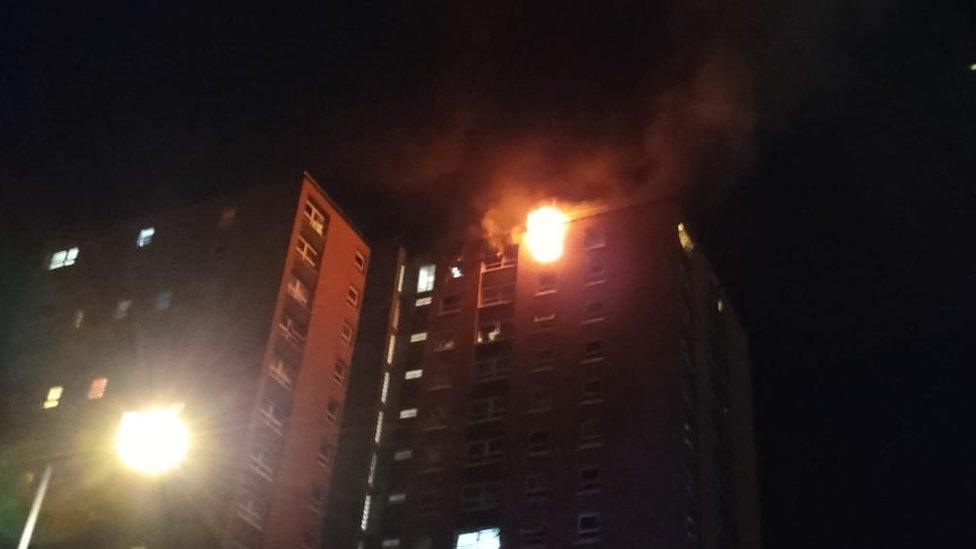
Abdul Jabar Oryakhel was killed in the Twinnell House fire
Tom Renhard, cabinet member for housing, told a council meeting on Tuesday the latest funding would take total spending on fire safety in Bristol's tower blocks to more than £24m in the past year.
Of particular concern are blocks insulated with expanded polystyrene cladding (EPS).
Out of the city's 62 high-rise blocks, 37 use EPS, with one other clad in a different, but equally dangerous, material.
Mr Renhard defended the spending on fire wardens, saying: "The introduction of waking watch as an interim measure will ensure the safety of residents remains paramount and secure.
"The council must commission this service as a precautionary measure to protect the health and safety of our residents of high rise blocks where EPS is present.
"It will remain in place at each block until suitable alternative measures are implemented, or those issues have been remediated."

Selma Muuse and her six-year-old son lived next door to the victim of the Twinnell House fire.
Since the blaze, Ms Muuse and her son have been housed in a series of hotels and other temporary accommodation.
But they are shortly due to move into new, permanent accommodation in Barton House in Barton Hill - one of the blocks clad with EPS.
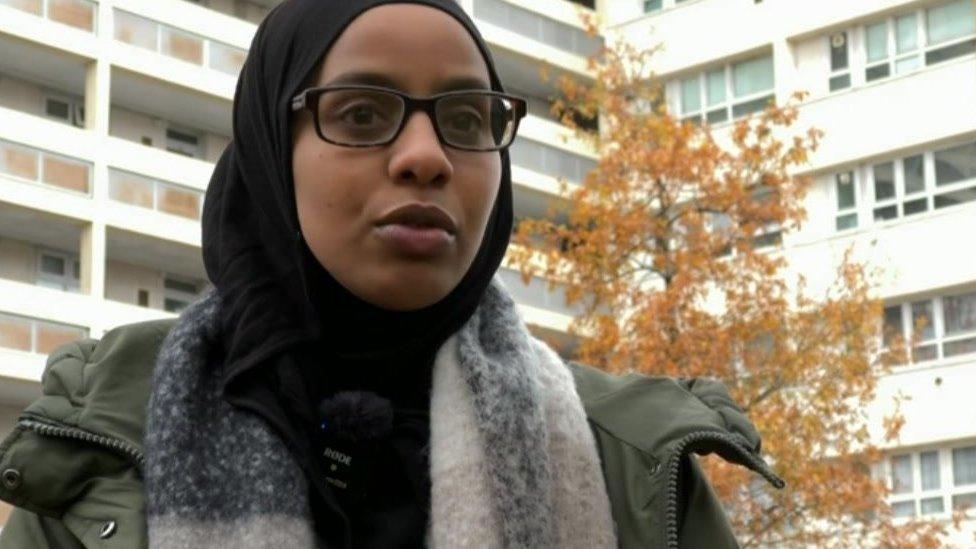
Selma Muuse says she is 'hyper alert' to every noise since the Twinnell House fire
Ms Muuse told BBC West: "Nobody is sleeping any more, the people I am speaking to say they are getting everything ready for if there is another fire."
She added: "We can't live in fear - especially now, when I have experienced trauma, I am just hyper-alert to every noise.
"I just don't want to live like that. I just want it to be safe for me and my child as well."
Ahmed Sharif, another resident of Twinnell House, said he feared the wardens were not enough to keep people safe.
"At the end of the day of they are downstairs, if something happens upstairs they haven't got a clue. What we need is a permanent fix."

Tom Renhard said the spending package was "the right thing to do".
As well as the £24 million spent on alarms and fire wardens, stripping the EPS cladding off tower blocks is expected to cost £48 million, although this could be spread over the next 10 years.
Mr Renhard said: "It is huge, it is a lot of money that we are investing but it is also the right thing to do."
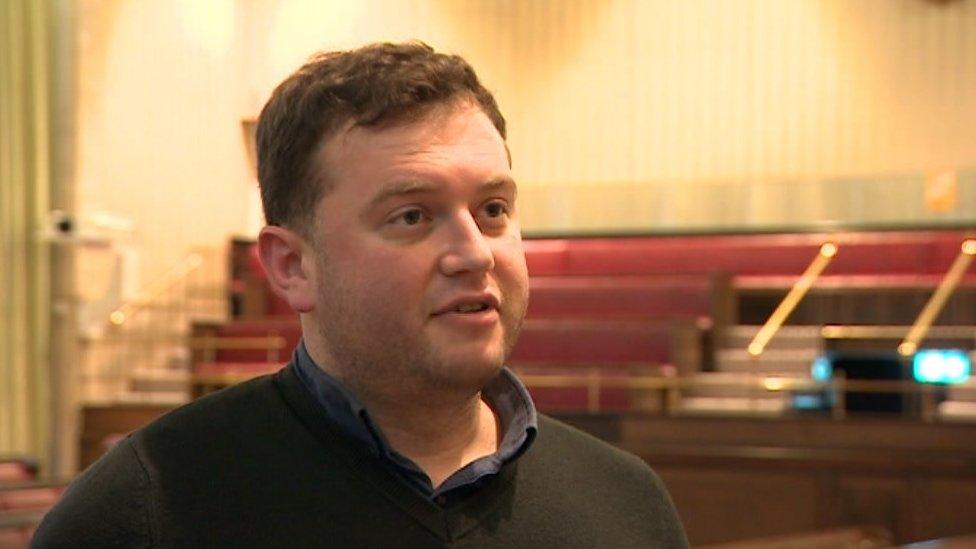
Councillor Tom Renhard said the fire wardens are a necessary interim measure

Follow BBC West on Facebook, external, Twitter, external and Instagram, external. Send your story ideas to: bristol@bbc.co.uk
Related topics
- Published30 November 2022
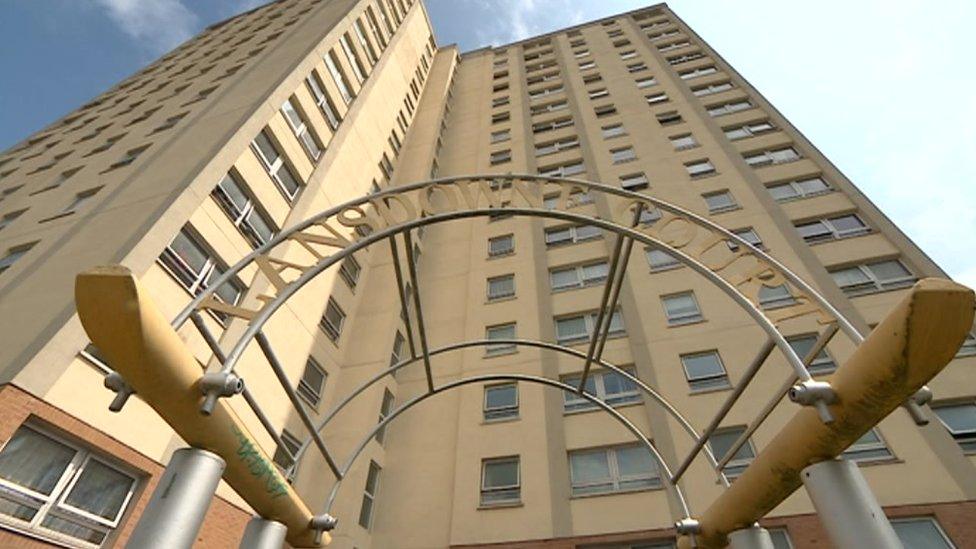
- Published27 November 2022
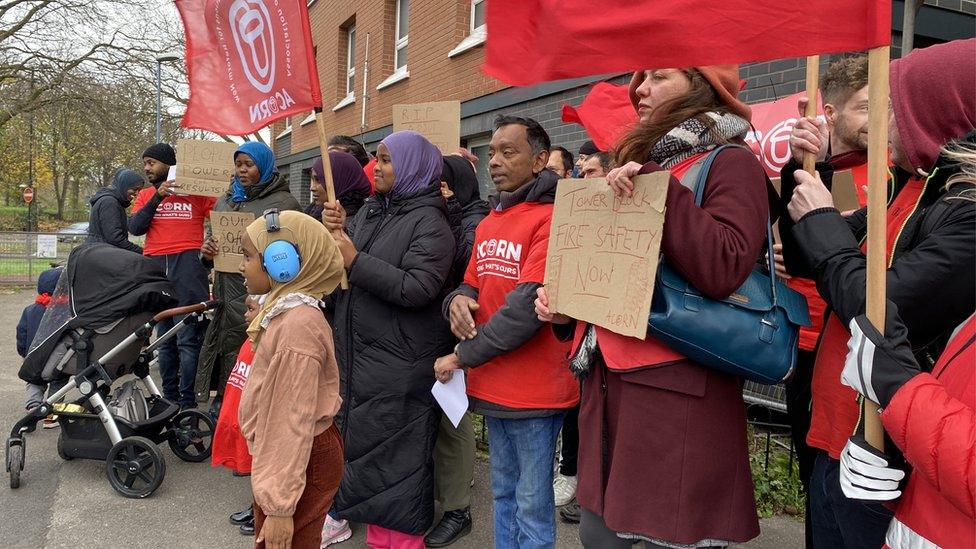
- Published9 November 2022
